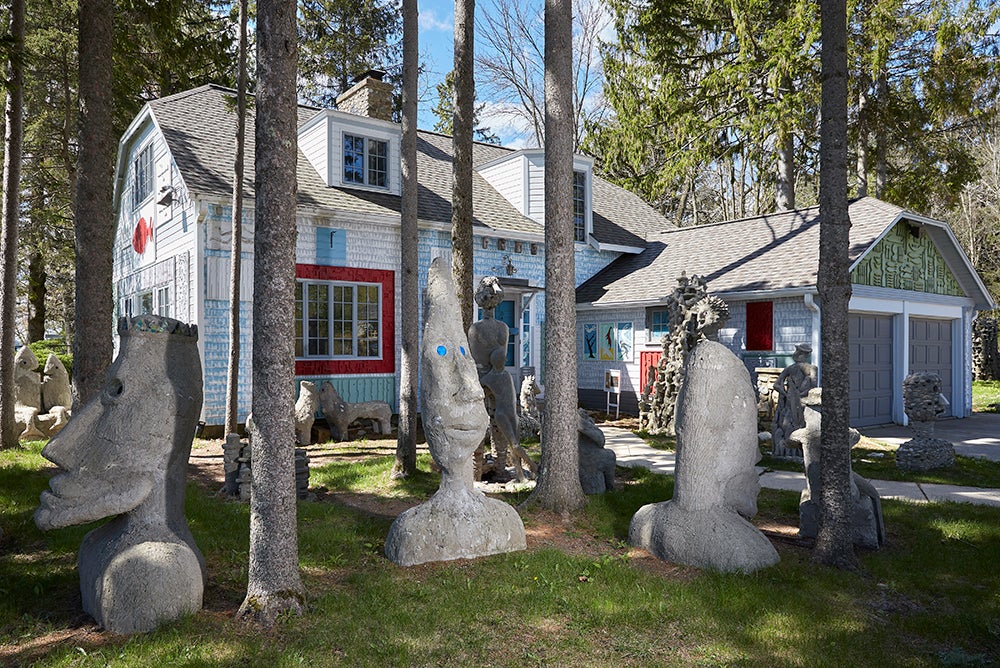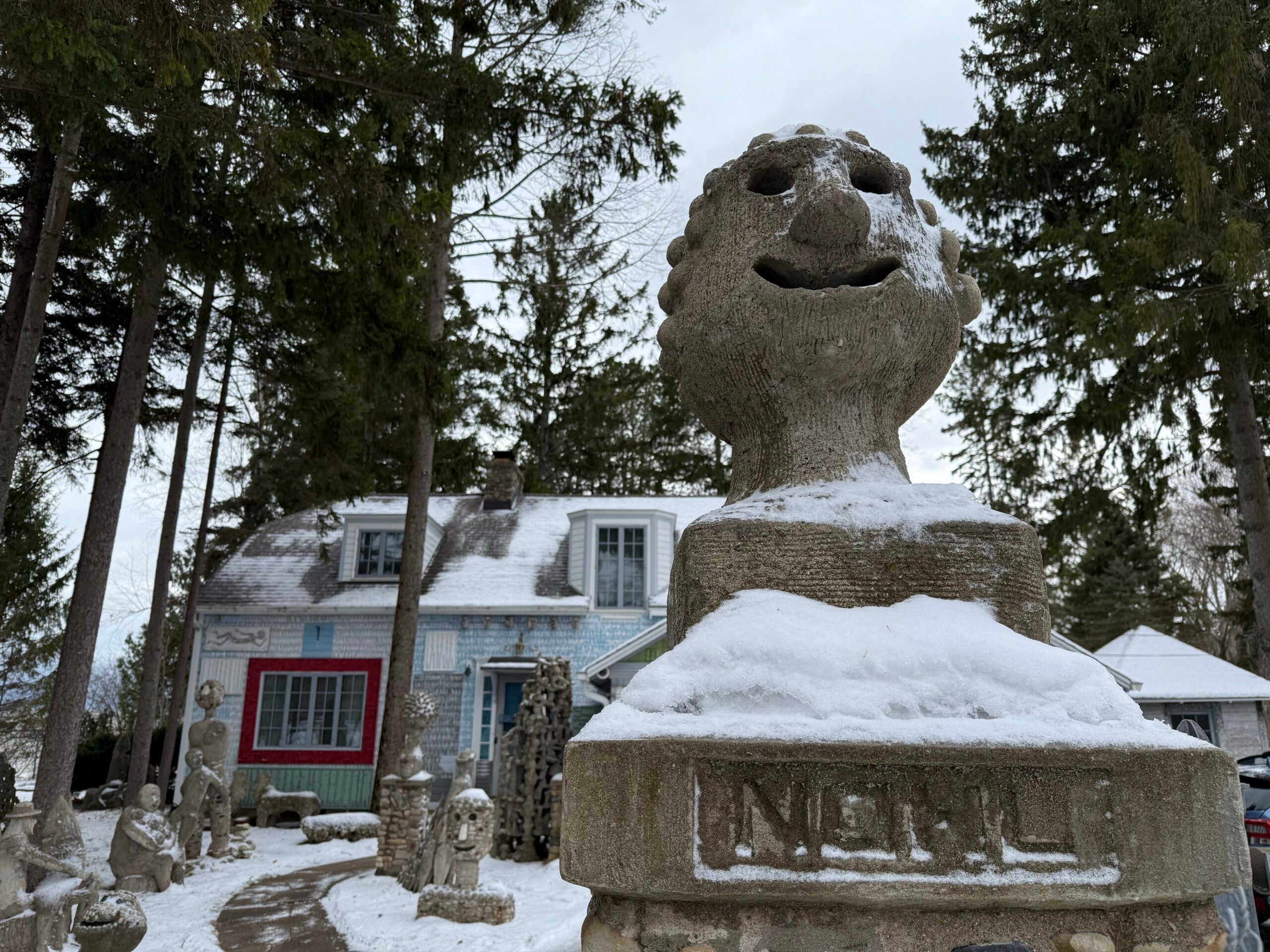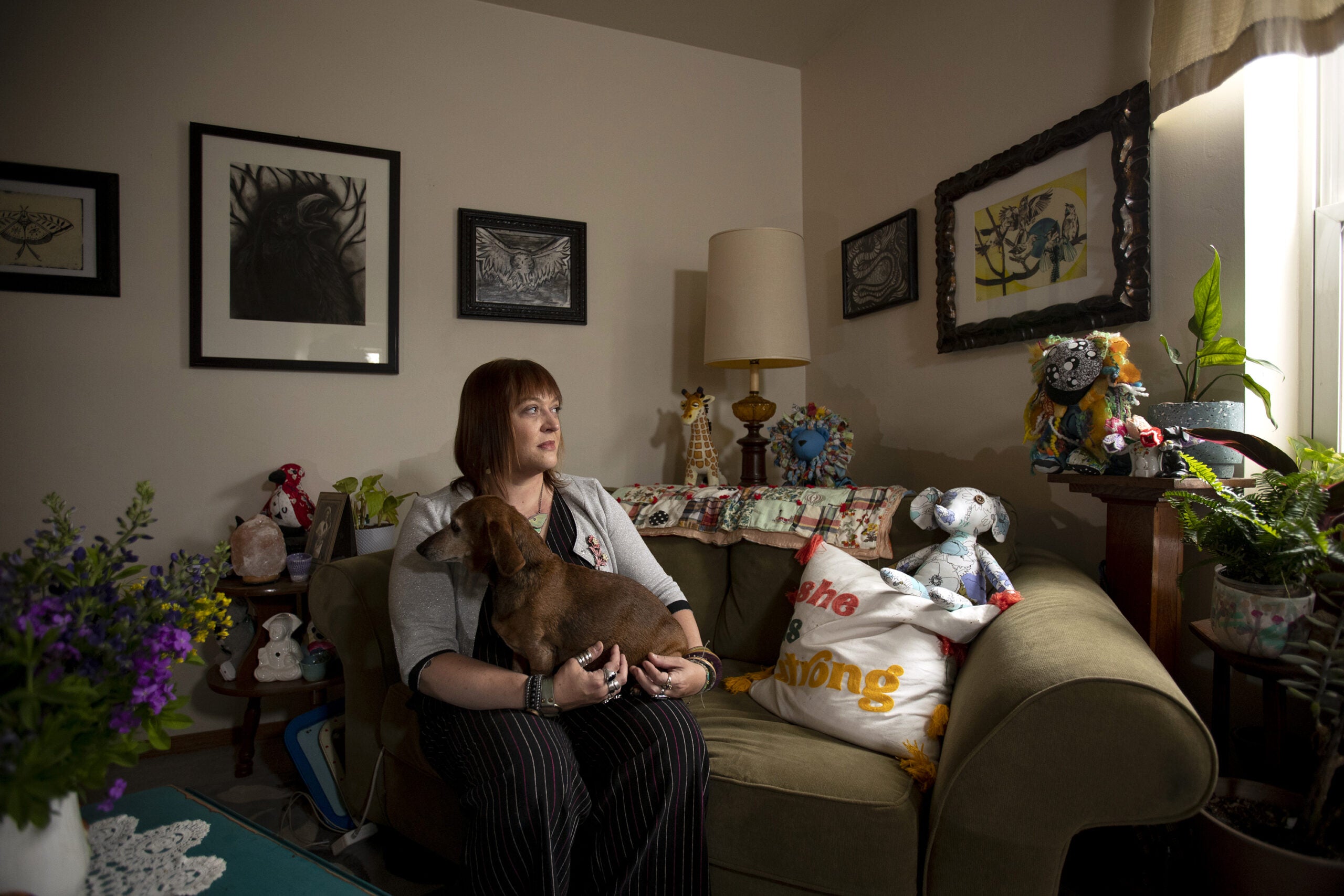For years, drivers would stop and gawk at the whimsical artwork outside Mary Nohl’s home, dubbed by some the “Witch’s House” of Fox Point, Wisconsin.
But what’s spooking some neighbors today is a proposal — advancing to a village board vote for the first time after years of opposition — that would formalize visitor access to the late artist’s property.

News with a little more humanity
WPR’s “Wisconsin Today” newsletter keeps you connected to the state you love without feeling overwhelmed. No paywall. No agenda. No corporate filter.
Nohl died in 2001. Five years before her death, she agreed to gift her property to the Kohler Foundation, which partners with nonprofits to preserve artwork.
In 2012, the John Michael Kohler Arts Center took stewardship of her home, now listed on the National Register of Historic Places. It sits along the shore of Lake Michigan on North Beach Drive.
The Foundation later transferred ownership to the Creation & Preservation Partners, an extension of the John Michael Kohler Arts Center. Currently, the site is not open to the public. Since 2017, an artist in residence has lived on the property.
Outside in Nohl’s yard are 59 concrete sculptures, part of a project she started in 1963. The interior is also replete with ceramic works, stained glass, furniture and walls Nohl painted using carpet swatches as brushes, according to Amy Horst, director of the Arts Center.
While most of Nohl’s work is off-site at a museum, about 20 percent of the work the artist created is in her home. Horst describes those works as “the most fragile and the most intricately tied” to the area, part of the reason why she said the Foundation wants to keep the artwork in the house.
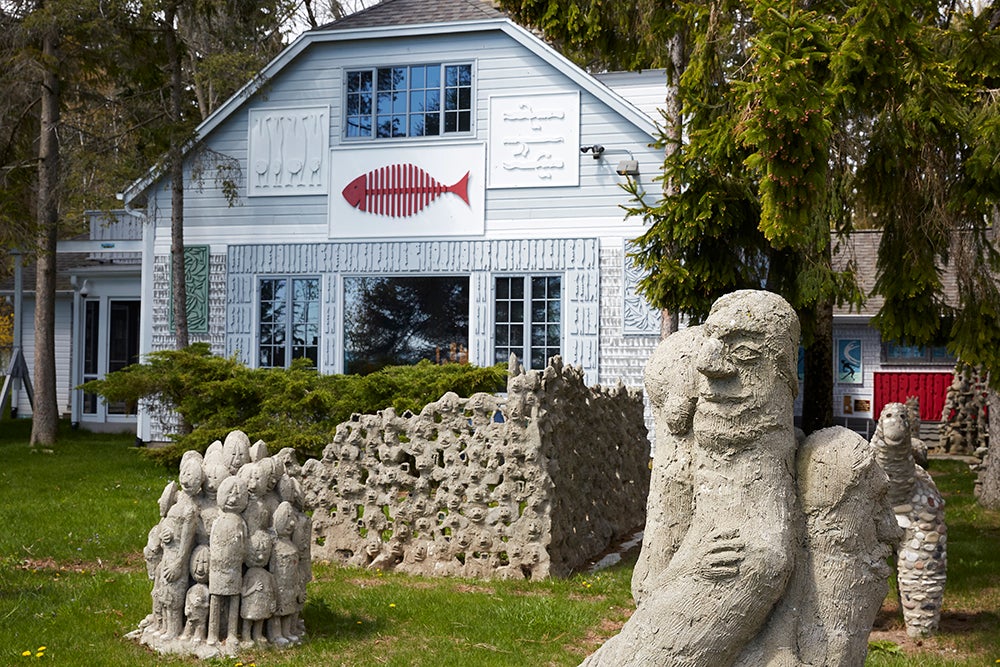
The Foundation is asking the village for a zoning change, also called a cultural overlay district, for locals, scholars and historians to have restricted access to the site. Under the Foundation’s plan, the general public won’t have open access to the home unless they express interest and arrange a visit in advance.
Yet some Beach Drive residents, who describe the area as quiet and peaceful, worry the plan will increase traffic and reduce the character of the neighborhood.
On Jan. 31, the village held a public hearing to review the proposal. The heated meeting drew nearly 200 attendees. It’s a reflection of a decades-long conflict, as multiple iterations of the plan have caused a stir among locals.
A rocky history
In 2005, the village reportedly issued 18 citations — later dismissed in municipal court — to the Kohler Foundation for alleged non-residential use of the property. At the time, professional conservators and graduate students had worked with the Foundation to preserve the house and sculptures.
The latest proposal has also drawn the ire of some neighbors.
“As was the case 20 years ago and 10 years ago, the immediate neighborhood overwhelmingly opposes this application,” wrote Tim Lemont, a Beach Drive neighbor, in a letter to Village Manager Scott Botcher, published on the “No Nohl Museum” website. The group is selling yard signs and started a petition with 200 signatures.
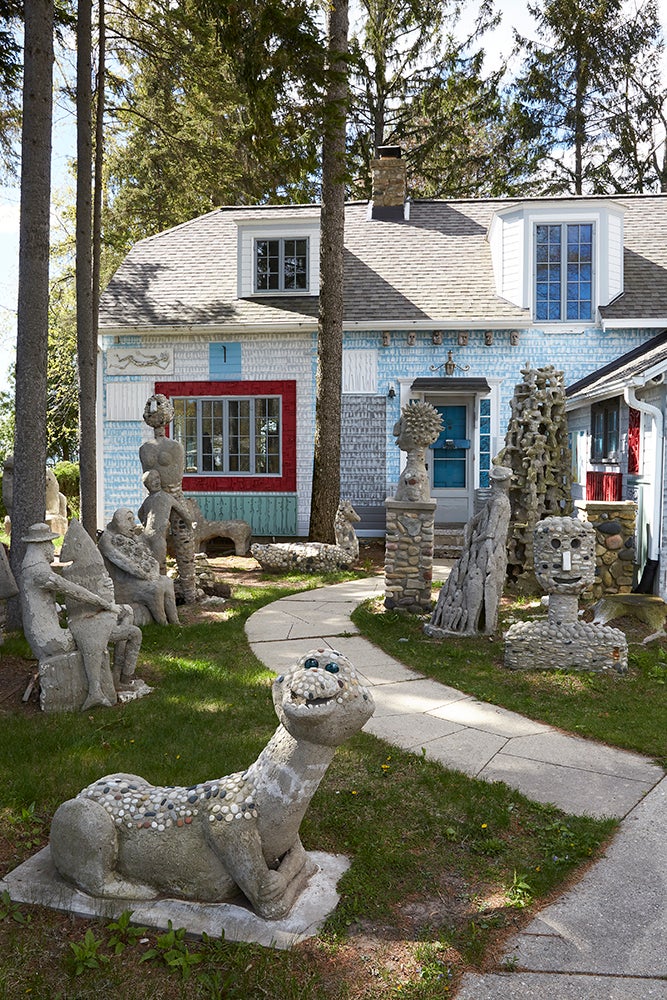
Kathryn “Murph” Burke, who has lived in the neighborhood since 1962, supports the proposal. She said since the Art Center took stewardship of the home, “nothing has really changed about the house and its positioning there.”
Something that will change with the proposal, though, is who permits entry into the home. Now, the artist in residence on the property can have people visit. The new plan would shift that determination to the Arts Center.
“I hear from everybody that we talked to, ‘just keep the status quo, why can’t you just keep what you’re doing?’ I’m like, ‘that’s what we’re trying to do. But we need to do that as an entity, not as a tenant,’” Horst said.
Moshe Katz, a Beach Drive resident, expressed some reservations, saying that very change risks losing “the neighborhood feel.”
The Foundation’s plan would allow up to 20 visitors a day up to three days a week, with no more than 10 at a time. Hours would be limited to 9 a.m. to 2 p.m., Horst said. It also calls for two annual events with up to 80 guests.
John Wirth, a lawyer representing Save the Beach Drive, a neighborhood association of 34 homeowners and businesses in the community, said that information was not made clear in the application but during the public hearing. “This is a difficult situation and very lacking in transparency,” he said at the village meeting.
Wirth said that if the application is approved, the Foundation could host more big events. “Kohler could bring 50 to 100 people there any time they want,” he said.
In addition, the Foundation plans to continue keeping the home open for residents to stay at the site. Small groups of students from local school districts can also visit Nohl’s home. Wirth said details of how many or how often they can visit are not specified.
Katz, who lived a home away from Nohl, said he thinks residents are pitted against each other on two extremes of either saving or opposing a Nohl museum.
“I’m in favor of protecting a beautiful home on a tremendous lot with phenomenal heart. I’m not in favor of making it something that neighbors can’t live with,” Katz said.
A continuation of the first public hearing will take place on Monday evening. The village board could make a final decision in March.
Wisconsin Public Radio, © Copyright 2026, Board of Regents of the University of Wisconsin System and Wisconsin Educational Communications Board.

